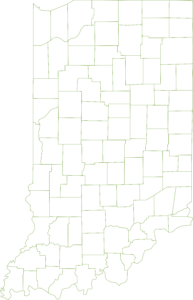Get to Know Andrew Foster, Inspiration Ministries. Founder
Tell us a bit about the story and background of how Inspiration Ministries came to be.
Substance use disorder is the most prevalent issue focused on by Inspiration Ministries. We started at a coffee shop and the heart and vision was community impact. First 5 to 6 years we focused on assessing the community’s needs. Having the coffee shop in downtown auburn helped to be able to ask questions and see what the need is. Over the first few years if people needed a ride to work, we’d give them a ride, if they needed a job they would help them find a job, etc. #1 Almost 100% of the community that received assistance either had a mental health issue or SUD. Also a large percentage was engaged in the criminal justice system. How are we going to make an investment or feel impact in these areas? We did a brief listening tour in the community. It didn’t take long to find that the services needed for SUD reentry, housing, etc. there was a huge gap. Not enough to impact people
The stat from DMHA was that 10% struggled with SUD and 10% of that got help. A needs assessment shows that there were 30 beds in the entire county and we needed more like 450. The question was: what was going to make the biggest difference?
Housing and housing tied to substance use. The vast majority, if not all people who are struggling with substance use disorder are struggling with housing and many have co-occurring disorders. Since covid we’ve seen that complexity increase. The idea of making a felt impact in the community, seemed like it would make the most measurable impact in the community and best thing to do. A good percentage of our staff have actually graduated from the program so there’s lots of passion behind the work that we’re doing.
You’ve had 4 separate Together We Will applications awarded for funding. Can you give a bit of background on what those applications entailed and what you applied for?
All 4 of our Together We Will projects are housing related.
1. The first is Victory Village which is a postgraduate level 2 recovery residence. Victory Village is a home that has the ability to provide 20 beds for men who are recovering from SUD. They completed a 9 month recovery with Inspiration ministries. It fits into affordable housing as well. Many served have felony records and don’t qualify for subsidized housing. Eliminates the barrier for them. Helios to operate the residence. They’ve seen that type of housing have a tremendous impact. No recidivism in 3 years. Art of that is because a lot of supportive infrastructure developed. Serving in Noble County. They can apply if any beds are available.
2. Another one funded is Huntington House. It’s a level 3 recovery residence that serves women and women who have custody of their children. It provides a little more space to keep a family unit together. Huntington House resembles more of the 9 month recovery program for women to experience recovery services. This application was for enhancing service with more space that is being developed to get more beds and build capacity for additional staff.
3. The third application was for the LaGrange recovery campus. This is more of an application for the vision that Lagrange County plant is its first certified recovery residence. They have none right now. The grant is for developing technical assistance to plant LaGrange counties first recovery home for men. Inspiration Ministries will be operating the recovery home. Technical assistance is about working with and bringing together stakeholders but Inspiration Ministries will operate the program when the home is built/bought.
4. Finally are the townhouses. We have townhouse apartments that are level 2 recovery residences providing housing for men, women and families who are graduating 9 month recovery programs. The townhouses are locate
Your organization has been quite successful in securing numerous grants and maintaining a steady stream of revenue. Can you share what your strategy for building sustainable funding is?
We learned and experienced early on that the idea of putting all eggs into one basket was not a good strategy. The reality is that it all started with a coffee shop, a small business that gave us a little bit of revenue. Before even beginning fundraising or telling the story of Inspiration Ministries (the coffee shop that made a little revenue), we saw individuals become donors. We took the same message to different organizations and churches and were able to build up our donations organically. In the midst of that, we became acquainted with state subsidy funding in 2018. Over the first 5 years we’ve had revenue, donors and stakeholder giving, corporations and churches giving and then state funding. The grant writing began in 2018. When thinking about where we’re at now with sustainability, we have at least 6 line items of revenue. Some may be 10% some may take on 30% of revenue. Diversifying funds has been a big reason why we’re able to sustain funds. If any one source of funding went away like state funding, it wouldn’t be impossible for us to continue. Overall, we’re pretty tenacious about funding. We’re not afraid to get out there and tell people what we’re doing. If we can find opportunities to sustain our funding, we get out there and go for it.
